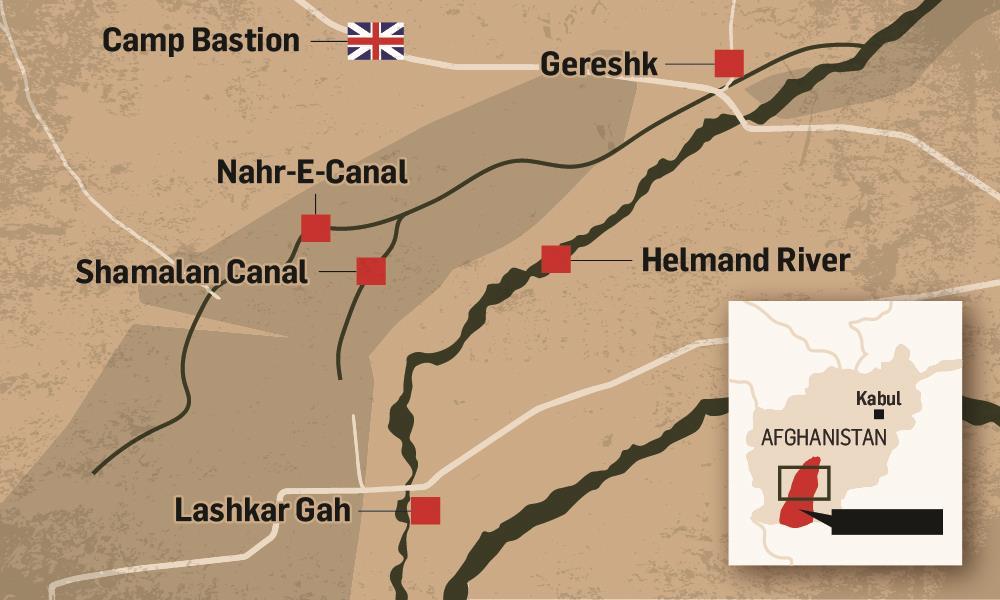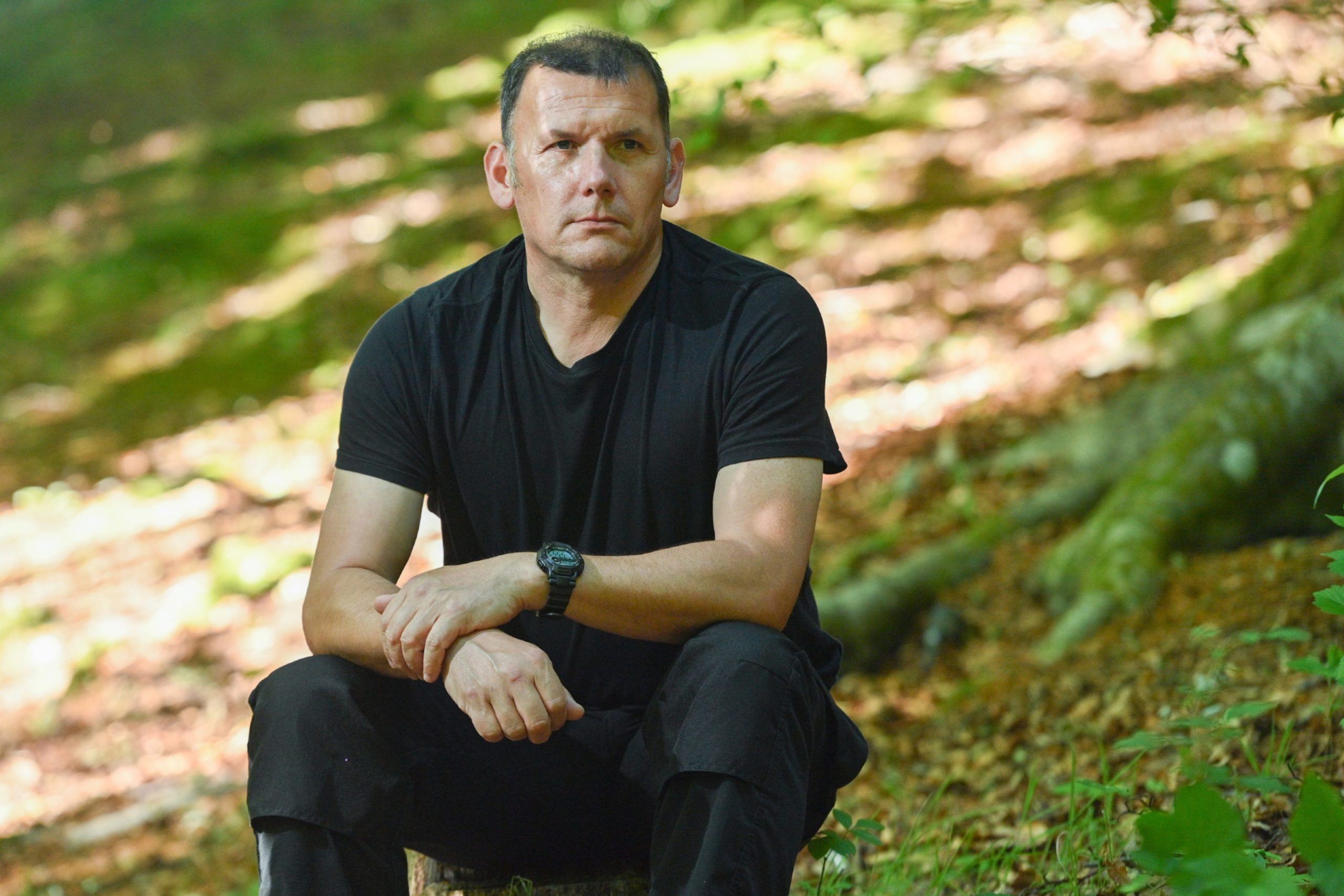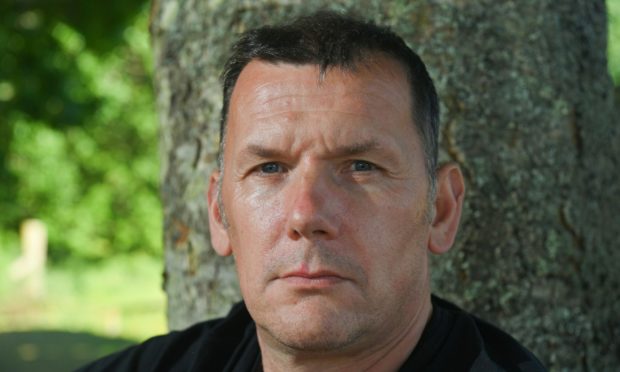He was riddled with shrapnel after a deadly rocket propelled grenade exploded yards away, killing two of his brothers in arms.
Black Watch soldier Eddie Nichol narrowly dodged death that day but was left with a piece of metal embedded in his head – a permanent personal reminder of Britain’s longest war.
Brave Eddie remarkably battled back from his severe injuries and the trauma of losing his Army buddies to return to Afghanistan – the country dubbed the Graveyard of Empires – to complete another tour.
He hopes research into his horrific injuries can help future generation of British soldiers – a positive legacy of the Afghan campaign codenamed Operation Herrick.
His brush with death came just after Operation Panther’s Claw – or Panchai Palang in Pashto – one of the biggest airborne operations since World War Two.
‘I will never forget it’
Eddie, 49, from Dundee, who served 24 years in the Army completing two tours of Afghanistan, Iraq, Kosovo and two tours of Northern Ireland, said: “It was a highlight of my career serving in Afghanistan but a low point as well, getting injured and taking 18 months to recover. I will never forget it.
“The grenade landed just a couple of feet from us. I was only saved because I was lying down at the time changing my radio’s batteries.
“Two men died – Sergeant Stuart ‘Gus’ Millar and Private Kevin Elliott – and I was seriously injured. But Gus and Kevin took the full force of the blast and were killed instantly.”
One piece of metal narrowly missed his jugular vein, leaving a four-inch gash in his neck. He spent four days in a coma.
I wanted to be back being a soldier and doing the job I loved.”
He said: “I was with a cracking bunch of guys on that tour. I volunteered to go back in 2014 from a selfish point of view. I wanted to go back to see if there had been progress and I felt that I never finished Herrick 10.
“I wanted to be back being a soldier and doing the job I loved. I did a nine-month tour, much to the dismay of my wife and kids.
“I told her I was told that I had to go but then I had to admit I volunteered and she eventually understood the reasons I wanted to go back.
“After we did Operation Panchai Palang, a big airborne assault, we were trying to deny the Taliban crossing points over the Shamalan canal.
“The engineers kept getting whacked by the Taliban so we were tasked with providing force protection for them.
“We broke into a compound to set up and just as we were giving a set of orders on the roof we were hit by a rocket propelled grenade.
“I was casevaced (evacuated by air) back to Camp Bastion and I woke up a few days later in hospital in Birmingham.”

In June 2009, around 3,000 British soldiers were involved in Operation Panther’s Claw.
The blitz aimed to drive out the Taliban from their Helmand strongholds and prepare the way for national elections.
Bloody fighting left 10 British soldiers dead and an estimated 200 Taliban insurgents killed.
The combat phase of Panther’s Claw began on June 19, 2009 when the Black Watch launched an air assault on Taliban positions.
Taliban supply routes were disrupted and vital crossing points captured.
On July 27 the first phase of the operation was declared a success by then Prime Minister Gordon Brown.
‘Only time will tell’
Dad-of-three Eddie, who now works as a plumber and lives near Inverness, said: “I have got one bit of shrapnel that went through my brain and out the other side so it is inside the skull but outside the brain.
“I’ve got shrapnel over my chest as well. There are still a few bits in there. In terms of our mission, the intent was never to stay in Afghanistan but to withdraw and leave the Afghans to get on with it.
Is it the way I would I have liked Afghanistan to have finished? Probably not.”
“They are trained as well as they are going to be by coalition forces. I don’t think we could stay there without American support anyway.
“Is it the way I would I have liked Afghanistan to have finished? Probably not.
“The concern is is it the right conditions or is there going to be a vacuum once coalition forces pull out – only time will tell.
“We went there to do a specific task and I think we achieved the mission but probably not as much as we wanted to.
“We would have preferred a political solution with the Taliban a lot quicker but the culture and the nature of the people, it is very difficult with the tribal allegiances, the religious backgrounds and things like that.
“Over there, the guy you were speaking to one day is on your side, then the next day he has a different point of view because he has brought his tribe or his area into it. It is very complex.”
Soldiers of the future

Eddie now hopes to help injured soldiers in the future – thanks to medical research.
He said: “I’ve still got long-term pain in my leg and I don’t think that will ever go away.
“I am taking part in a long-term study of battle injuries. Hopefully this will give something back to the soldiers of the future and I can at least feel that I am doing my bit to advance treatment.”
Scotland’s Forgotten War
Scotland’s Forgotten War is an in-depth investigation into one of the country’s longest running conflicts – the campaign in Afghanistan – and how it forever changed our local families and communities.
From Dundee, Angus and Fife to Aberdeen, Inverness and the Highlands, the combat thousands of miles away in Afghanistan has cast a long shadow over people’s lives in the last 20 years.
Read the full series:
- ‘I’ll see you on the other side’: Fife soldier Liam Tasker describes ‘fantastic life’ in letter written in event of his death
- ‘What was my son killed for?’: Mother of tragic Fife soldier Liam Tasker fears her son’s sacrifice will be forgotten
- Grieving mother of Fife soldier Sean Binnie hopes son’s death will not be for nothing as troops leave Afghanistan
- Black Watch soldier relives day his friend Sean Binnie was killed in Afghan firefight
- Grandmother of Dundee soldier killed in Afghanistan says British troops ‘should never have been there in the first place’
- Mother of combat medic ‘angel’ says too many lives have been lost in Afghanistan conflict
- The Royal Regiment of Scotland: A history of Scotland’s super regiment
- Medals belonging to Perthshire soldier seriously injured in Afghanistan find new home at military museum
- ‘It completely changed my life’: Why journalist Stephen Stewart became a soldier after Black Watch assignment
The Impact team
- Words by Stephen Stewart
- Design by Cheryl Livingstone
- Graphics by Roddie Reid
- Photographs, video and audio by Jason Hedges, Mhairi Edwards, Drew Farrell, Blair Dingwall and Morven McIntyre.
